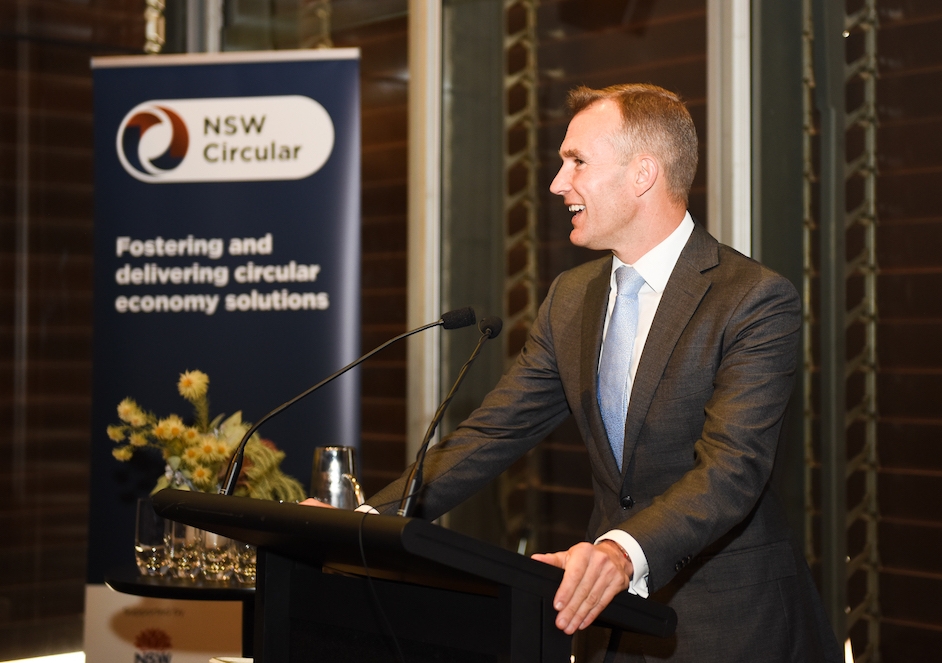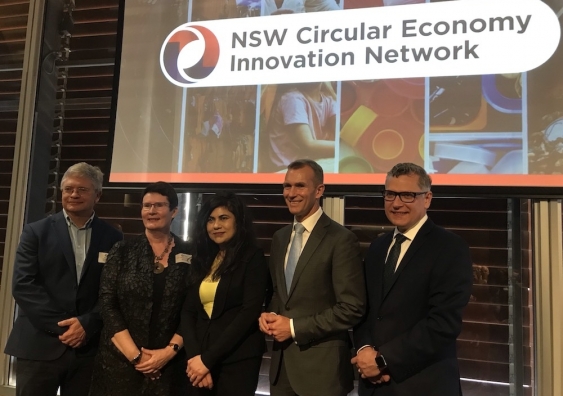New innovation network to reduce waste and improve sustainability
Jobs in regional areas will be among the first products of the NSW Circular recycling and manufacturing network.
Jobs in regional areas will be among the first products of the NSW Circular recycling and manufacturing network.

Stuart Snell
0416 650 906
s.snell@unsw.edu.au
NSW Planning and Public Spaces Minister Rob Stokes today officially launched the new UNSW-hosted Circular Economy Innovation Network.
Mr Stokes said the network, known as NSW Circular, would help boost manufacturing jobs in regional NSW as the state moved away from the traditional ‘take, make and dispose’ model.
“With China no longer accepting our recycled waste, our manufacturing industry must evolve,” Mr Stokes said. “This is our chance to bring more jobs back to our own backyard, particularly in the Special Activation Precincts in regional NSW.
“This isn’t just the right thing to do for the environment; it makes good economic sense – there are significant jobs and growth opportunities for existing and new businesses across NSW.

Manufacturing industry evolution: from left, NSW Chief Scientist and Engineer Hugh Durrant-Whyte, NSW Circular board Chair Margaret Harding, UNSW SMaRT Centre Director Veena Sahajwalla, NSW Environment Minister Rob Stokes, and NSW Circular Co-Director Ashley Brinson.
“Pilot projects are already underway through the network that aim to create new supply chains, turn trash into valuable products and materials for manufacturing, and divert waste from landfill.”
The network, funded through the Office of the NSW Chief Scientist & Engineer, brings together industry, government, local councils, researchers and the community, and is led by Scientia Professor Veena Sahajwalla, Director of the Centre for Sustainable Materials Research and Technology (SMaRT) at UNSW Sydney.
Environment Minister Matt Kean said NSW Circular would complement other important initiatives already in development, including the government’s 20-Year Waste Strategy and Plastics Plan.
“There is a lot of activity in this space, but to date it has lacked a degree of coordination and connectivity,” Mr Kean said. “This new network will help us develop the programs we need to increase recycling and create a circular economy.”
Professor Sahajwalla said: “In the lead up to this launch, NSW Circular held a series of consultation sessions with a range of stakeholders from across NSW. I’m pleased to confirm that we have a number of pilot projects underway which are aimed at helping to divert waste from landfill and examine ways to create new supply chains so recycled resources can be reformed into valuable products and materials for manufacturing.
“By working with and bringing together the many groups wanting better waste and recycling outcomes, which importantly includes those involved in materials recycling science, we are creating new solutions and a circular economy where we reuse and keep materials in use for as long as possible. I look forward to working with our new partners in the business community, as well as with research colleagues from across the state, to ensure that NSW leads the way in adopting sustainable practices, goods and services.”
NSW Circular Board Chair, Emeritus Professor Margaret Harding, said: “There are many good ideas, but the sector hasn’t always been able to establish pathways to market. The network board brings extensive experience with business, industry and government in designing and implementing circular economy programs and will support the team in identifying new opportunities.”